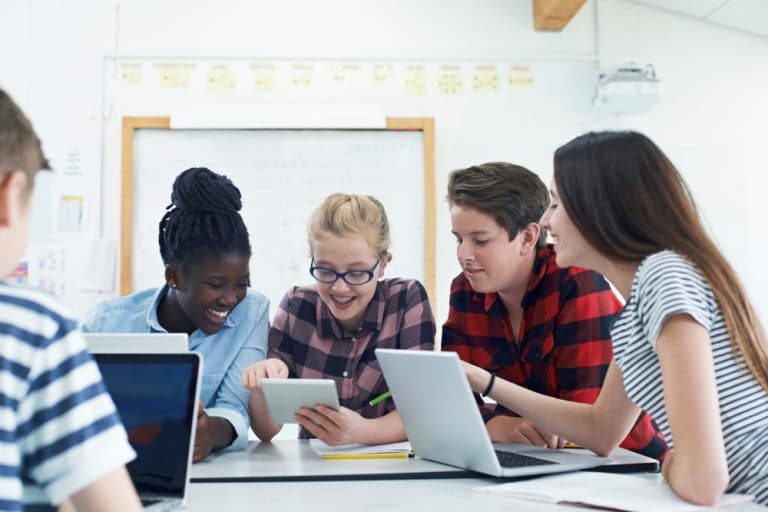Young People’s Update – Autumn 2023
Chatter Matters
Our young people’s forum Chatter Matters meets every month online and in-person during school breaks. It is a great opportunity to meet other young people in care and give us your ideas and suggestions about things we can do for young people in Fostering First. We have two groups, one for 12-14 year olds and one for 15-18 year olds, who meet separately but come together throughout the year to collaborate on projects and share ideas. We will have a lot of new members joining in September 2023, so if you were thinking about joining, now is a great time! Feel free to pop along to a meeting to ask any questions you may have, or simply just observe and see if you would like to come again. If you would like to join, speak with your foster carer or chat to Katie on 087 9653825. We hope to see you there!
Birth Children Groups
We are so excited to be running our birth children groups again in October! We have three groups, 8-11 year olds, 12-14 year olds, and 15-17 year olds. These groups are a great way for you to meet other birth children who foster and to make new friends. We have themed groups with games, arts and crafts and quizzes! If you are interested in coming along, speak with your parents or chat to Katie on 087 9653825.
Book Club
FFI’s fantastic Book Club will continue as everyone returns to school. It is open for all young people from 1st class and up and we will have two groups (Primary and Secondary) who will meet monthly online. Whether you are a young person in placement or a birth child, we would love all of our fantastic FFI readers to join our Book Club! We will have lots of brilliant book recommendations as well as some book crafts, character building, reviews and discussions as well as some creative writing for our aspiring authors!
Storytime – Summer 2023
I hope everyone has enjoyed the Storytime recording sent out to carers with 0-12 year olds approximately. Listening to stories is one of the best ways for children to begin their journey in healing trauma. Listening to stories releases good chemicals in to the brain that stop damaging chemicals such as cortisol. Listening to stories allows the brain once in a relaxed state to allow for further language development, helps with processing, supports imaginative growth, supports communication development and then ultimately can help a young person to use story telling to talk about their own story. The power of stories are awesome! Sharing stories from books, making up stories in imaginative play, reading together or just sharing a memory as a story are all ways that a child can begin to flourish. When picking stories for Storytime it is important for me to have a story that may have a moral or be the start of a conversation about anything from mindfulness to the stars at night. The last story for this Summer’s story time was Arlo, the lion who Couldn’t Sleep by Catherine Rayner. A lovely book for bedtime to quiet a mind that might be busy or a bit worried about the school days ahead. As always, every story begins with a little mindful breath.
Transitions back to school
Any transition for a child who has experienced trauma can add or trigger a child’s existing trauma and become a transitional trauma caused by the impact of not feeling safe and secure in the school environment. Children experiencing trauma have so much more to contend with in a school environment, with loud noises and shouting adults that can trigger trauma and increasing feelings of unpredictability. Being asked to sit still can be a huge ask for lots of children and it is easy for children to become dysregulated within the classroom environment.
Back to School – Creating a Family – Episode – Back to school with fostered and adopted kids podcast. Some hints and tips for children heading back to school and the impacts school can have on a young person’s life.
Remember that the transition back to school can be very stressful for a child experiencing trauma, and it may take a few weeks minimum for a child to begin to feel safe and secure within the school environment. Practice regulation with breathing exercises and using the senses to help a child be in the present and able to calm down. Practicing daily at home over time will help a child to develop ways of noticing when they start to become overwhelmed. Practicing regulation breathing exercises when a child is calm will help the brain to remember these techniques and help with the calming down process when a child is overwhelmed and dysregulated by their feelings and emotions.
There are lots of mindfulness tips we can all do every day to support.
Having reminders around the house with these types of exercises on will encourage everyone to remember to use them. Used regularly will have a positive effect on brain development not just for children but us too!
Just because the children are back in school don’t forget to get outside when you can. Studies are showing that on average a child only spends 7 minutes outside doing unstructured play and a whopping 7 hours on screens per day! Playing outside in nature, whatever the weather is good for the soul. Being in nature can support the growth and repair of the nervous system which helps to repair trauma and anxiety behaviours. We all know that chronic stress (trauma) is toxic to the developing brain, but outdoor play provides so much repair to the whole body. Being out in nature has been proven to alleviate stress and encourages both children and adults to release bottled up emotions and allows the body to regulate. So, if the house is getting a bit tense and stressed, it’s time for walk in any green area together!
Cosmic Kids – lovely video on managing stress with mindful walking out in nature.
Don’t forget workshops coming up this term – Navigating Secondary School – 12th October recommended for anyone with a young person in 1st -3rd year in secondary school. Maths – 16th November recommended for carers with children aged 0-12 years, we will look at how maths is important for very day language, how to support a young person struggling in maths without needing to be an expert in Maths yourself and the impacts for a child going forwards.


